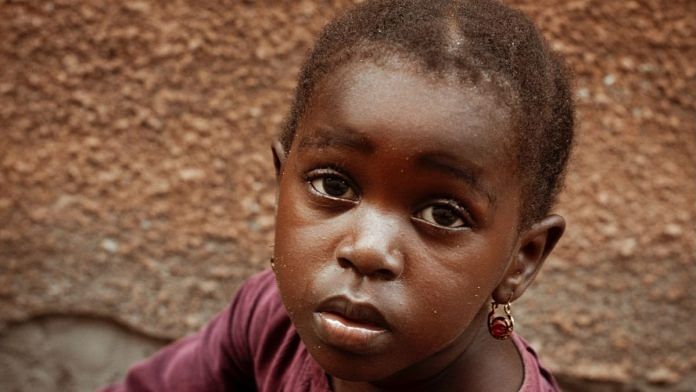- Female genital mutilation, also known as cutting, affects at least 200 million girls and is practiced in 31 countries.
- The practice reflects gender based violence and gender discrimination and has no health benefits.
- Increasing advocacy, awareness and knowledge around the harmful practice within communities, as well as involving and empowering women are proven to be the most impactful ways to effectively reduce female genital mutilation.
Female genital mutilation, also known as cutting, affects at least 200 million girls, according to the World Health Organization. It is practiced in 31 countries around the world. In some of those countries, up to 90% of girls have been subjected to the harmful practice.
Female genital mutilation is a practice that involves the partial or total removal of the external genitalia. The practice engages no health benefits but is an act of violence affecting vulnerable women and girls, reflecting gender discrimination and violence.
The COVID-19 pandemic may play a significant role in the rise of female genital mutilation threatening years of progress made so far and putting at risk 2 million girls in the next decade. A policy briefing from the Orchid Project highlights that school closure and lockdown measures were taken as an opportunity to (re)install female genital mutilation.
As we marked the International Day of Zero Tolerance for Female Genital Mutilation, it is important to recollect the health implications of the practice and understand what key actions should be prioritized to protect women’s and girls’ health.
What women and girls experience
Many women and girls will experience lifelong impacts damaging their health and wellbeing, leading to physical, psychological, and societal negative consequences.
A long list of health implications result from female genital mutilation: haemorrhage, infections, severe pain, sexual health issues, infertility, menstrual complications, cysts, ulcers, serious obstetric complications including maternal and infant mortality, among others. Women and girls may contract septicaemia, tetanus, or HIV, due to unsterilized tools.
Female genital mutilation can result in death. Recently, in Sierra Leone, a 21-year-old girl died from acute bleeding and shock a day after she underwent female genital mutilation. In Egypt, a relative reported the death of a 14-year-old girl who died while experiencing female genital mutilation in a clinic. She suffered complications after the surgery. Unfortunately, these girls are no exception.
Lifelong trauma
Female genital mutilation leaves girls and women under shock with lasting psychological consequences.
A higher prevalence of psychological effects is reported – even when the practice goes without complications – including anxiety, depression, PTSD, sleeping disorders, memory loss and low self-esteem. A case-control study conducted in Iran in 2018 showed that women who are subjected to female genital mutilation are more vulnerable to mental health disorders, compared to women who didn’t undergo the practice.
In addition to these impacts, women and girls subject to female genital mutilation encounter prejudices that keep them marginalized, excluded, neglected and undermined.
Rejection
Sasha was subjected to female genital mutilation at the age of 9, she shortly married after the practice. Health complications due to female genital mutilation and teenage pregnancy led Sasha to the loss of her baby during childbirth. She was then rejected by her husband and felt vulnerable facing humiliation from her family and community leaving her isolated and in pain.
Betrayal
Dena shares her story about her aunt who organized her cutting without consulting her nor her mother. Dena felt a sense of betrayal, pain and confusion and only understood what really happened years later. Girls also often feel anger, frustration and a loss of trust towards relatives who brought the practice to them.
Stigmatization
Fathma underwent female genital mutilation at the age of 10 and perpetuated the harmful practice to her daughter because of social pressure. Fathma feels angry at her community, especially the elders, for threatening and harassing her until she ended up keeping and respecting the traditional practice and putting her daughter at risk. Women who decide to not undergo the practice are often banned from their communities, left unmarried and considered as unclean and promiscuous.
The way forward
The prevalence of female genital mutilation varies between countries and even across subgroups within the same country. A trend analysis shows a faster decline in prevalence in East Africa between 1995 and 2016, as opposed to other regions such as Central Africa or Western Asia which show an increase of the practice.
When most countries have recognized female genital mutilation as a violence to women’s and girls’ health and rights, in some countries laws are inadequate or not enforced and therefore fail to protect women and girls from the harmful practice.
Increasing advocacy, awareness and knowledge around the harmful practice within communities, as well as involving and empowering women are proven to be the most impactful ways to effectively reduce female genital mutilation. Actions on the ground such as the Dear Daughter Campaign or community-based intervention programmes have proven to be powerful and impactful by leading to a decrease in the practice.
There’s still a long way to go. This year’s theme Accelerating Investment to End Female Genital Mutilation is a call for support, investments and collaborations to ensure trends don’t shift due to the COVID-19 pandemic, as this could jeopardize years of progress.
This article was originally published in the World Economic Forum.
Also read: Today is Zero Tolerance to FGM day, and battle to end Bohra Muslim custom has only begun



